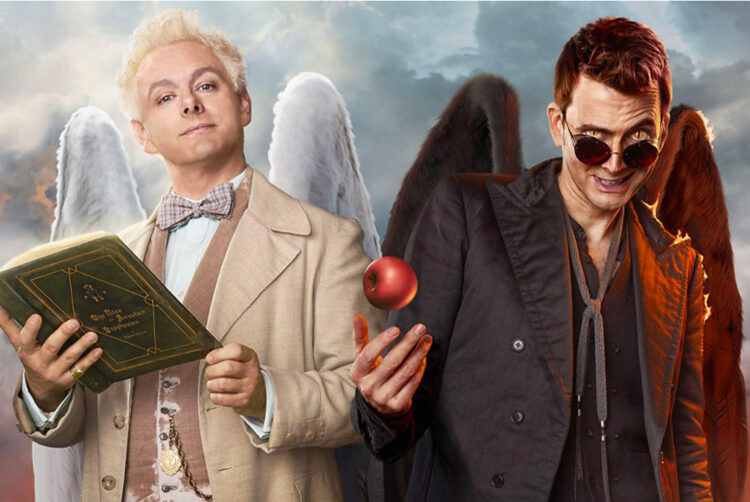BBC Studios: expand or die?

Opinion
TV production is widely expected to enter a period of decline. Shouldn’t the commercial arm of the BBC be investing in homegrown talent?
In a recent interview, BBC Studios CEO Tom Fussell stated: “we are looking at other opportunities to invest in companies internationally. We will not rule anything out, we have the ambition to double the size of this business and we come from a very strong base.
“The ambition is there, we are being really considered in where we want to enter the market and why, but what I have learned is you can’t rule anything out. The biggest thing for us is cultural fit and to make sure [acquired companies & creatives] really get us — we are a BBC global company and we have the BBC brands and values behind us.”
At face value, this is an entirely sensible idea, a logical step on the way for the BBC to gain global heft, diversify production talent and establish a presence outside the confines of the UK.
But…
Shouldn’t the commercial arm of the BBC be investing in homegrown talent and adhering to a policy of “Buying British” — especially in a time when TV production is widely expected to enter a period of decline?
Writing in the Financial Times, global media editor Alex Barker noted that “overall spending growth on original content is expected to fall from 6% last year to just 2% in 2023, according to research group Ampere Analysis. Excluding production shutdowns during the coronavirus pandemic, the rate of expansion is the lowest in more than a decade where total worldwide spending jumped from $128bn to $243bn.”
If Fussell does plough cash into non-UK production companies, there’s no guarantee it will be plain sailing.
Witness the years-long travails of ITV Studios with Duck Dynasty’s Deirdre and Scott Gurney of Gurney Productions.
The likely high relocation costs of senior BBC Studios executives may also generate unwelcome scrutiny, especially if publicly known to already possess significant financial resources of their own.
To quote Nigel Molesworth, “any fule kno” in a spending spree, securing production talent for the long haul is vital, otherwise top management/creative execs can up sticks a few months after a buyout with their payoffs, leaving just the hollow shell of a company name and back catalogue.
Something else to consider would be the headlines generated by the BBC acquiring stakes in European production companies. Could this set the Daily Mail/GB News/Talk TV crowd off?
Possible headlines such as: “Remoaner BBC gives our licence fee money to Italian soft-porn producers” may well cow the likes of director-general Tim Davie and chairman Richard Sharp, who appear in thrall to the Right-wing media.
On the other hand, it could also be seen as a sign of renewed UK power, with hypothetical splashes in the vein of: “For you Fritz, the war is over! BBC buys the German production company behind Das Boot“.
One for the Big Brains of BBC senior management to work out.
Sky’s not the limit
Meanwhile, I’m pretty sure Sky won’t be especially happy with The Guardian’s hyperbolic description of the broadcaster’s ongoing Sky Cinema Originals Movies slate.
Why, you ask?
Upcoming pictures in the strand appear marginally superior to the off-the-shelf market sweepings of previous years (Final Score, Red Notice, Hurricane Heist, Serenity, Twist, Life Itself etc), but there seems little in the way of game-changers to alter the perception of Sky’s exclusive movies as anything other than mediocre.
No franchise-worthy hits for instance, with all revealed titles looking at first glance fairly niche.
Michael Mann’s Ferrari may be worth a watch, but there’s been a glut of similar movies over recent years – Lamborghini, Ford vs Ferrari, Rush, Driven etc. And Mann, like near contemporary Brian De Palma, is generally acknowledged as being well past his prime.
It’s interesting to note no US distributor has yet to pick Ferrari — not a good omen.
It now appears that the excellent Promising Young Woman (2020) was merely a false dawn in what some hoped to be a step change in the quality of Sky Cinema Originals after the departure of Ian Lewis from the helm in 2019.
Under the Lewis regime, the experiment of releasing some Originals simultaneously on the platform and in cinemas proved a dud, with every movie flopping at the UK box office.
Personally speaking, the banner of a Sky Cinema Original Movie is an active turn-off when surfing the electronic programme guide, given the brand’s less than stellar history.
 Stephen Arnell began his career at the BBC, moving to ITV where he launched and managed digital channels. He continues to consult for streamers and broadcasters on editorial strategy. He currently writes for The Spectator, The Independent, and The Guardian on film, TV and cultural issues. He is also a writer/producer (including Bob Fosse: It’s Showtime for Sky Arts) and novelist.
Stephen Arnell began his career at the BBC, moving to ITV where he launched and managed digital channels. He continues to consult for streamers and broadcasters on editorial strategy. He currently writes for The Spectator, The Independent, and The Guardian on film, TV and cultural issues. He is also a writer/producer (including Bob Fosse: It’s Showtime for Sky Arts) and novelist.




